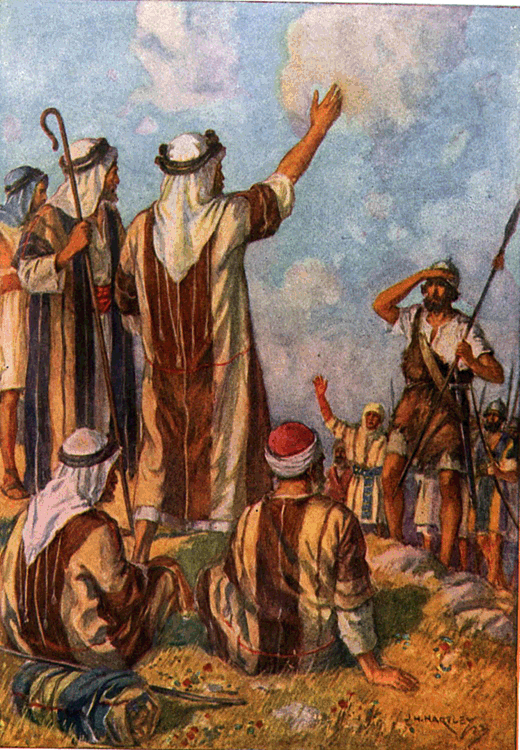I have a word of warning for those in the Christian church claiming to be prophets, watchmen and seers who are putting out prophetic words about Donald Trump, the fate of America, the rest of the world, the end times and everything and everyone else. Mark this and mark it well: All the biblical prophets of YHVH Elohim in both the Old and New Testaments including the apostles were Torah-obedient. To believe otherwise is to believe a lie. Period.
Most today who claim to be hearing from Elohim don’t even know what the Torah is, how to define it and, moreover, are often blaspheming (wittingly or unwittingly) the Torah by speaking against it. Yeshua said of the Torah, “Think not that I am come to destroy the Torah-law, or the prophets: I am not come to destroy, but to fulfil. For verily I say unto you, Till heaven and earth pass, one jot or one tittle shall in no wise pass from the Torah-law, till all be fulfilled” (Matt 5:17–18). Of such prophets and everyone else, Yeshua concluded by saying, “Whosoever therefore shall break one of these least Torah-commandments, and shall teach men so, he shall be called the least in the kingdom of heaven: but whosoever shall do and teach them, the same shall be called great in the kingdom of heaven” (Matt 5:19). According to Yeshua, those who speak against the Torah will be least in his kingdom. Mark these words well, you who claim to be prophetic!
Moreover, most who call themselves prophets and watchman are unaware of the biblical truth that there are eleven levels of a prophet. Most so-called modern prophets are operating at the lowest levels, and may not even hold the office of a prophet despite their claims. Many are simply walking in their own delusions and are being strengthened and affirmed in their delusions by a Babylonian church system that is as equally spiritually errant, blind and ignorant of biblical truth as they are.
Furthermore, most so-called prophets do not know the difference between an apostolic prophet and a church prophet. One who is the latter and is trying to act as the former may actually fall into the category of being a presumptuous prophet (a biblical term), and is, in reality, one who is usurping authority that doesn’t belong to him.
Moreover, not only are most prophets not Torah-obedient as they should be, but they do not recognize the difference between a false prophet and a spiritually blind prophet who prophesies out of the dictates of his own heart, thus making him a carnal prophet (like Balaam).
Before you speak another word in the name of YHVH Elohim (“the LORD God”), you would be advised to understand these truths and become compliant to the whole counsel of YHVH’s word. Until you do, you will bring Elohim’s judgment upon yourselves as presumptuous and carnal prophets.




